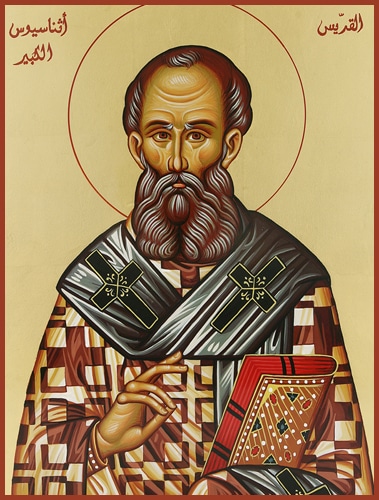
“He, the Life of all, our Lord and Saviour, did not arrange the manner of his own death lest He should seem to be afraid of some other kind. No. He accepted and bore upon the cross a death inflicted by others, and those other His special enemies, a death which to them was supremely terrible and by no means to be faced; and He did this in order that, by destroying even this death, He might Himself be believed to be the Life, and the power of death be recognized as finally annulled. A marvelous and mighty paradox has thus occurred, for the death which they thought to inflict on Him as dishonor and disgrace has become the glorious monument to death’s defeat.”
Saint Athanasius, On the Incarnation
All Christians are taught that Christ submitted willingly to his death. More than that, in eternity the Trinity agreed ahead of time that the Son of God should die for us. “For God so loved the world that he gave his only begotten Son that whosoever believes in Him should not perish, but have everlasting life.” But, even knowing that, I never thought about what Saint Athanasius says in the above quote.
You see, the Trinity could have chosen for the Son of God to die a simple and nearly painless death. Decapitation would have been quick and essentially painless. In that case, either the beheading block or the sword would have been our Christian symbol. But Saint Athanasius points out that this would have opened the Trinity to charges that the Son of God was afraid to face the fate that was the doom of all too many humans during that time in history. By facing what Saint Athanasius calls a death, “supremely terrible and by no means to be faced,” he points out how deep the Trinity followed the dictum that the Son of God should not have special privileges.
“Let this mind be in you which was also in Christ Jesus, who, being in the form of God, did not consider it robbery to be equal with God, but made Himself of no reputation, taking the form of a bond-servant, and coming in the likeness of men. And being found in appearance as a man, He humbled Himself and became obedient to the point of death, even the death of the cross.
Philippians 2
In choosing to have no special privileges, Christ Jesus would have known that this was going to subject him to a particularly horrible form of execution. By submitting himself to a common form of execution in those times, he validated–to an extreme–how willing he was to become one with us, how willing he was to take on himself not only our sins, but also the results of our sins. More than that, by submitting himself to this death, he showed himself to be greater than his enemies who themselves were not willing to face this type of death.
In this way, he not only destroyed death, but he destroyed death utterly. By dying a death that even caused his enemies to think, he showed a moral superiority and a strength that showed his enemies how little they were. Thus, as Saint Athanasius says, his worthy (axios) death becomes the annulment of death and the beginning of new life.



Leave a Reply